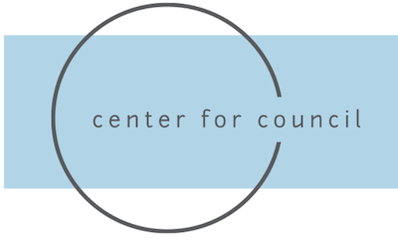|
Eve Marko, a Founding Teacher of the Zen Peacemaker Order and head teacher at the Green River Zen Center in Massachusetts, recently highlighted our book, Leaving Prison Behind: A Council Before I Go. In her post, titled "Arctic Weather and Prison," Marko reflected on the experiences of people who have been incarcerated and the challenges they face upon reentering society.
“I couldn’t put the book down. I’d never served time in prison, but the book spoke to me very personally. It talked to how we grow up, who and what influences us, and what decisions we make in our life that have long ramifications not just for us but for everyone around us,” Marko wrote. Marko praised Leaving Prison Behind as a powerful and insightful novella that sheds light on the struggles of those who have been through the criminal justice system. The book offers a unique perspective on the issue of mass incarceration, as it is created from the words and stories of system-impacted individuals, and those who support them. She wrote that, “I find something in common with Ray. I wasn’t in prison per se, wasn’t hurt, called a number, dehumanized and humiliated, but I think I know about bars that have kept me in place. And I, too, wish to go home.” As conversations around criminal justice reform continue to gain momentum, books like Leaving Prison Behind play a vital role in increasing understanding and empathy for those who have been impacted by the system. You can read the rest of the post here. And learn more about Leaving Prison Behind and order a copy for you, or for someone who is incarcerated here.
0 Comments
 "Love and compassion are necessities, not luxuries. Without them, humanity cannot survive," ― Dalai Lama XIV Compassion has the capacity to transform the world. It enables us to develop great insight into other people's suffering and to take meaningful action in response. It is the ability to identify with and feel the emotions of others and connect with the motivation and resolve to take action to lessen their suffering, while remaining intact ourselves. Compassion is not only an emotion, but also a practice. As Buddhist scholar Joan Halifax observed, “Compassion is made up of non-compassion elements that are trainable.” In other words, compassion can be nurtured and grown. In his book, Where Compassion Begins, Center for Council Executive Director Jared Seide makes the case that compassion is only possible if we begin by slowing down, taking a backward step and cultivating a practice of paying deep attention. A consistent mindfulness practice like meditation increases our capacity to be present, aware of others, and to respond to their needs in a loving and understanding manner. Loving-kindness meditation is an example of a technique for increasing compassion. This sort of meditation focuses on our feelings of love and friendliness toward one another and toward ourselves. We can learn to develop compassion for ourselves and others, even under trying circumstances, by frequently practicing loving-kindness and other forms of meditation. By using less formal mindfulness techniques, one can also grow compassion. Being more mindful might mean becoming more conscious of the thoughts, feelings and sensations arising in us that we often ignore. It can also open our eyes to new ideas and new understanding of the people we interact with, as well as the world around us. As a result, we may develop a deeper sense of empathy for ourselves and other people, and a better capacity to respond kindly and compassionately to those in need. We can also cultivate a more wholesome practice of self-care and more mindfulness of our capacity and wellbeing. We can learn to be kind to and understanding of ourselves, even in trying circumstances, if we exercise compassion towards ourselves. This can lessen stress and anxiety symptoms and increase emotions of wellbeing, as well as make us more effective. Building compassion through meditation and reflection does not need to be done solo! Council is a practice of deepening compassion in a group setting. By sitting in circle with others, building self-awareness and experiencing empathy for the stories and experience of others, we understand others more deeply and start to feel profound connections through our shared narrative. We often experience someone speaking of an experience or feeling that resonates deeply with our own experience. Council can be a powerful and collaborative experience of growth, both as an individual and as a community. While we can get mired in our own drama and concerns, as well as the over-stimulation of today's fast-paced society, taking time to cultivate compassion for ourselves and others can enhance our lives and make us more effective. Whether we consider compassion to be a virtue, an emotion, or a practice we can increase our capacity and focus on living a balanced and beneficial life and that has the power to transform society. And compassion is also a crucial self-care technique that reminds us to treat ourselves and others with kindness and understanding, even in trying circumstances, and to avoid common responses to stress like burnout, numbing and empathic distress. Compassion has the potential to change the world by fostering more tolerant and helpful communities. Council offers a compassion-based practice that enables us to build more cohesive and beneficial groups that can have a great impact on creating a more harmonious and connected world. “Compassion is the basis of morality.” ― Arthur Schopenhauer For thousands of years, telling stories has been a fundamental part of human culture. We have always been enthralled by the power of stories, whether in prehistoric cave drawings or contemporary books and films. Whether it's a traditional tale passed down verbally through the centuries or a brand-new narrative created by a modern screenwriter for a movie, storytelling has the capacity to take us to other places and give us a profound understanding of what it means to be human.
Empathy is one of the key components of good storytelling. We are able to place ourselves in other characters' situations when we resonate with a narrative, feeling their emotions and going through their trials as if they were our own. This makes it possible for us to comprehend and relate to the human experience on a level that is challenging to accomplish without the empathic connection. Because of this, storytelling has been employed for ages as a method of healing and personal development. The capacity for storytelling to inspire is another crucial benefit. Stories have the power to motivate us to be our best selves, whether they are true or made-up tales of people who overcame great obstacles. Stories inspire us to act and have a positive influence on the world. Amidst the information-overload of today’s fast-paced world, it can be challenging to stand out from the crowd and have an impact. Stories enable us to more deeply engage and connect with others and often leave a lasting impression. Weaving compelling stories in settings like the council circle can foster powerful, relatable and memorable experiences of connection and commonality. Storytelling amuses, motivates and unites people - and has done so for centuries. It is a useful tool to have in your toolbox and helps you share your perspective authentically, while reinforcing your ability to listen and understand others more deeply and carefully, both in personal as well as professional contexts. The proliferation of new technology has increased the number of ways there are to tell and share stories, expanding the opportunities for stories to impact our lives and the lives of others. Storytelling has an immense impact in today’s hyper-connected world, just as it has for thousands of years. Council offers an opportunity to engage in storytelling as both a listener and a teller - and it can be a laboratory for developing skills to more effectively tell and listen to stories. Join our next Social Connection Circle here: https://www.centerforcouncil.org/social-connection-councils.html Or attend a Council Training: https://www.centerforcouncil.org/in-person-council-workshops.html “We have been given the gift of Indaba by the keepers of the stories. We are asked to hold the spaces for the retelling of these stories and to invite each person to share the story they carry within their soul. Indaba is a Zulu word and tradition that means “I have something important to tell you.” The circle is called to guide the children to the dreamtime and to honor the Elders and Ancestors by retelling how they lived and died. The circle is a way in which community is made and remade and through which investments of initiatory knowledge are shared for strengthening social agreements and engagements. Each person is considered the beginning and end of the circle and holds the task of asking for the highest truth for the wellbeing of the community. The Sacred Center is home, the place of belonging or Spirit. Indaba.” Orland Bishop, Legacy Holder and Teacher of African Gnosis |
Categories
All
Archives
March 2024
|
|
|
About |
|



 RSS Feed
RSS Feed
